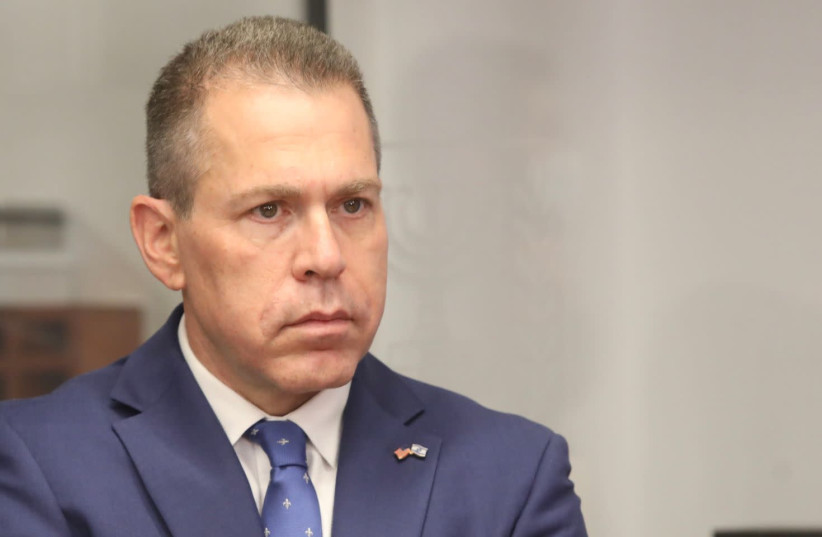WASHINGTON – A small group from the Israeli Embassy in Washington, including Gilad Erdan, the ambassador to the US and the UN and his senior staff, gathered at the National Museum of African American History and Culture last Thursday.
Erdan toured the museum thoroughly for over three hours, learning about slavery, the civil war and the Civil Rights movement.
“I believe that as an ambassador in the US, it is not enough just to talk about reaching out to the African American community,” he told The Jerusalem Post. “You need to demonstrate by your deeds and actions that you truly want to learn and strengthen the ties between Israel and US minority communities. I fully intend to keep learning and visit similar sites in Georgia and New York soon.”
He said that his guidance to his staff ahead of each visit is to invite grassroots leaders from the younger generations alongside veteran activists. “For my tour at the National Museum of African American History and Culture, I invited Rev. Dr. Carroll Baltimore, who served as the 19th president of the Progressive National Baptist Convention, and at the White House Office of Faith-Based and Neighborhood Partnerships during the Obama administration,” Erdan said. “We also invited Latisha Malcolm, a social studies teacher in Prince George’s County in Maryland and Corie Wilkins, a police officer in the city of Durham, NC. It is important to me to hear from both generations about their experiences.”
Erdan noted that his office also wanted to extend an invitation to members of Congress, but they couldn’t join given that Congress is not currently in session, and most members are not in Washington.
“The most touching part at the museum was learning about the story of Emmett Till, the 14-year-old African American who was lynched in Mississippi in 1955,” Erdan mentioned. “Being there, seeing the casket and his pictures – it truly shook me to the core. I was so moved to think about his mother, who decided to use an open casket to alarm the US, and the world. It made me think about my previous trips to other sites in the deep south, where I learned about lynching in America, about slavery and the fight for civil rights. As Jews, we can definitely relate to these stories and empathize with them.”

The visit to the museum is part of a series of visits that the ambassador is holding. In February, he took a three-day visit to South Carolina and Alabama to celebrate Black History Month. It was his first official tour since taking office.
In Montgomery, Alabama, the ambassador toured the Rosa Parks Museum and at the Dexter Avenue King Memorial Baptist Church, named after Martin Luther King Jr., who was a pastor there.
“At the Rosa Parks Museum today, I was truly inspired to hear how one woman’s steadfast courage helped spark an entire movement for change,” he tweeted then.
He also visited the Edmund Pettus Bridge in Selma, Alabama, the place of the 1965 “Bloody Sunday” beatings of civil rights marchers.
“The connection between Israel and the African American and other minority groups is natural given that Jews are a minority too, which oftentimes is a subject for hate crimes and racially motivated attacks. I believe we should be proactive in building this bond,” he told The Jerusalem Post this week, following his recent tour in Washington.
He said that it would require a structural change at the Foreign Ministry to make a more significant investment in building ties with minority communities across the US. “The Israeli Foreign Ministry is, understandably, focused on the Jewish Diaspora, but we need to expand it to many other communities, as we successfully built ties with the evangelical community,” he said. “It is a complicated mission, and it won’t happen overnight. There are hundreds of communities and organizations, but the time to start is now.”
“All minority communities – including the Hispanic community and the Asian American community, together with African Americans and other minorities, amount to some 40% of the US population,” he noted. “The US is changing, and it is natural for Israel to strengthen its ties with these communities as we seek to maintain the close relationship between the two countries for the long run.”
